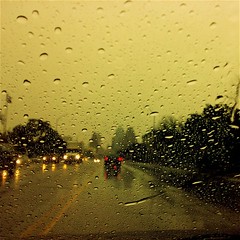
Basically, a geographic area assigned to a particular church. Various church traditions have used the parish system to ensure every area is served by a church. It's usually thought of as a medieval and/or Catholic and/or strange Louisiana thing. It's also often associated with the concept of 'a parish priest', a kind of lonely messiah who only talks to people twice his age and occasionally helps McCauley Caulkin get home safe on Christmas Eve.
In reality, the earliest churches planted by Paul and co. appeared to assign themselves parishes; in addition, throughout much of history a church's responsibility to a parish usually went far beyond the work done by one priest. For example, up until the modern era, most Anglican and Catholic parish churches still included at least an official parish nurse, a school, the equivalent of a 'neighborhood association', and numerous opportunities for the community to learn and practice music and visual arts. In fact, much earlier on, when the early Greek and Roman churches started dividing and assigning church groups to parishes, they did so much effective work for their communities they gradually replaced/morphed into the official local civil government [ok, probably don't want to go any further with that, unless we've got our eyes set on the Travis county sheriff's office or something].
The original term for parish comes from the Greek words meaning 'beside-house'. So, historical tradition aside, when we say Vox has a parish, we mean:
1) literally the area beside our house
2) is the responsibility of our group of believers
One quote off the internet is straightforward, but somehow a nice change of pace from our consumer/consumption Christianity:
"Choosing a church should be a no-brainer. We are divided by location into "parishes." Where you live determines where you go to church. In some ways, no further choice should be necessary. Catholic churches are remarkably similar one to another; in every parish throughout the world, the same Scripture is read, the same feast days celebrated, the same doctrines (for the most part) upheld."